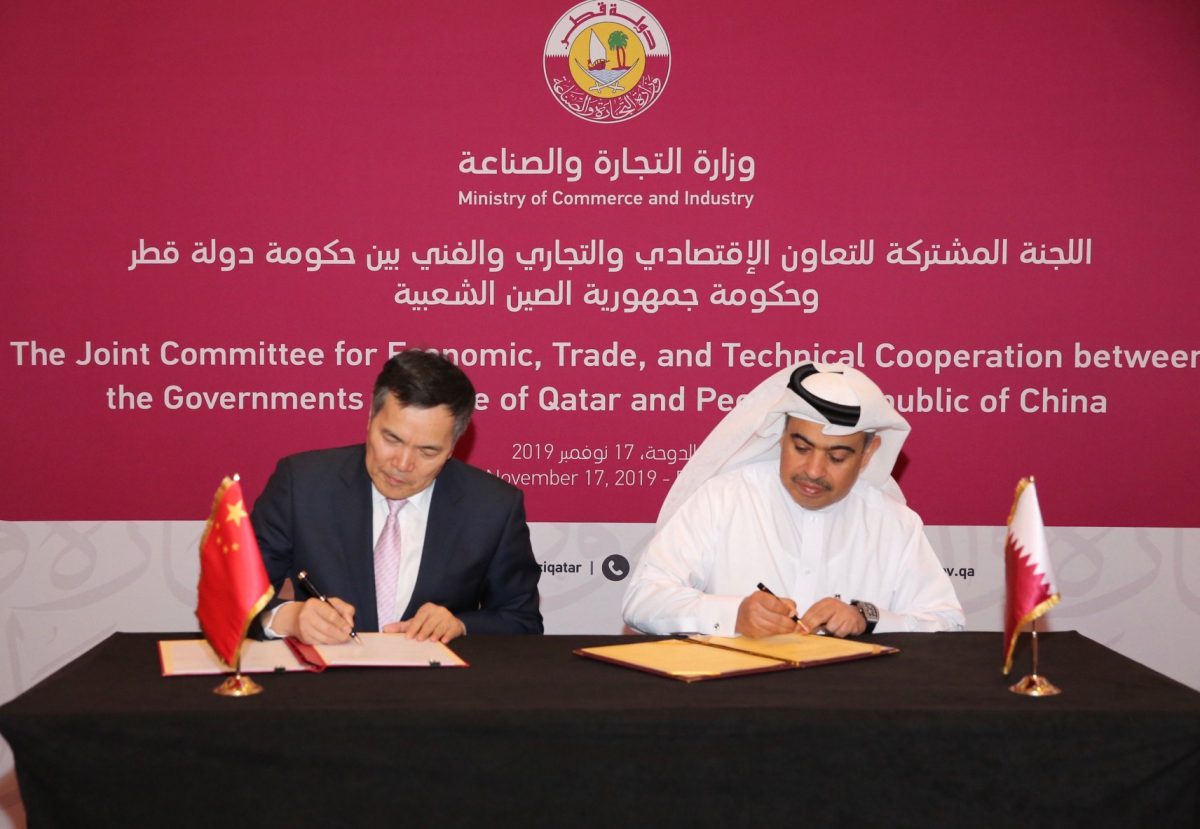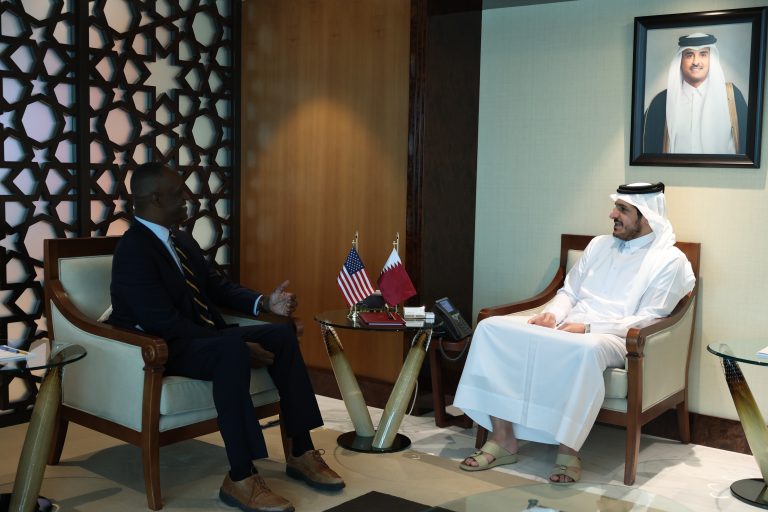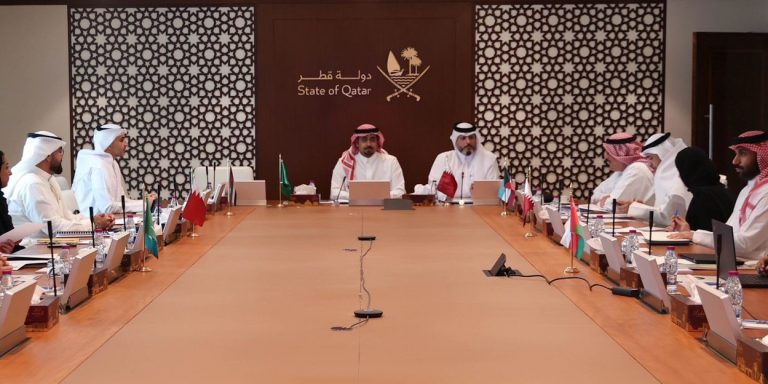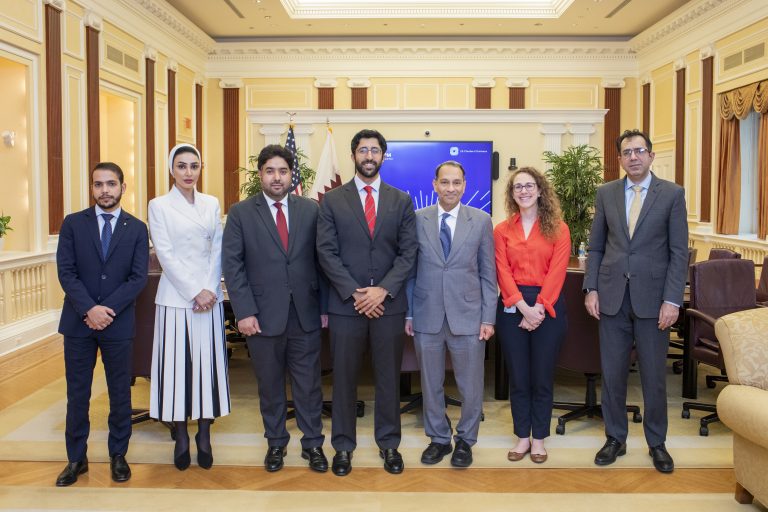

H.E. Mr. Ali bin Ahmed Al Kuwari, Minister of Commerce and Industry, and H.E. Mr. Qian Keming, China’s Vice Minister of Commerce, co-chaired the second session of the Qatari-Chinese Joint Committee for Economic, Trade, and Technical cooperation, which was held in Doha on November 17, 2019.
Discussions touched on the various aspects of cooperation in sectors of shared interest to both countries.
H.E. said Qatar’s partnership with China serves as a model for its foreign relations, marking more than three decades of bilateral cooperation, as evidenced by the exchange of high-ranking official visits.
Growing bilateral trade and investments reflects the strength of Qatari-Chinese economic relations, H.E. added, noting that bilateral trade reached QR 49.22 billion in 2018, an increase of 27.08% compared to 2017. Today, China ranks as Qatar’s third-largest trading partner and accounts for 11.65% of its total trade volume, H.E. said.
Touching on Chinese investments in Qatar, H.E. said over 265 Chinese companies and representative offices have established a presence in Qatar, including 244 joint Qatari-Chinese firms and 20 representative offices for Chinese firms, in addition to one fully owned Chinese company, and one company licensed by Qatar Financial Centre.
H.E. said these companies operate in several vital economic sectors, such as trade, contracting, construction, information technology, and engineering consultancy.
H.E. added that human capital also plays an important role in strengthening bilateral cooperation, with over 3292 Chinese citizens currently living in Qatar.
On the other hand, China represents an attractive destination for Qatari investments in the fields of technology, hospitality, tourism, real estate, retail, and financial services, among other vital industries, H.E. said.
H.E. added that Qatar and China are also bound by several memorandums of understanding that play a key role in strengthening bilateral ties.
These include an agreement on the Promotion and Protection of Mutual Investments, and an Air Transport agreement, which paved the way for more than 38 passenger and cargo flights linking Doha to most major Chinese cities, H.E. said.
H.E. explained that these agreements enhance the prospects of strategic integration and provide a legal framework that will encourage the Qatari and Chinese private sectors to seek successful investment projects.
H.E. added that today’s meeting comes amid mounting concerns voiced by international institutions over a 2019 global economic slowdown due to trade barriers, supply chain disruptions, and rising interest rates.
This requires all parties to come together and join efforts to create new partnership opportunities, consolidate economic and investment alliances, and strengthen bilateral trade, H.E. said.
H.E. invited Chinese companies to take advantage of the investment-friendly environment that Qatar offers as one of the world’s fastest growing and most balanced economies.
In this context, H.E. noted that Qatar ranked first among countries that achieved growth over the last 20 years, with an average annual growth rate of 10.5%.
Quoting the World Bank’s latest report, H.E. said Qatar’s economy is expected to grow by 2% in 2019 compared to 1.4% in 2018, and 3% on the medium term, driven by higher growth in the services and construction sectors as Qatar implements projects within the framework of its National Vision 2030 and in preparation for 2022 FIFA World Cup.
Touching on Qatar’s investment environment, H.E. said Chinese companies that choose to explore Qatari markets will benefit from a multitude of incentives to expand their businesses regionally, including Qatar’s strategic location between East and West, and investment laws that allow up to 100% ownership across various sectors, commercial activities, and the real estate market.
H.E. added that Qatar has been also keen on protecting Intellectual Property rights, and guaranteeing investors the freedom to transfer capital from and to the country, in addition to developing an advanced network of Free Zones, and logistics and industrial areas, that meet investors’ demands.
H.E. concluded his remarks, by voicing hope that the second meeting will further contribute to strengthening bilateral economic, trade, and investment ties.
The two sides discussed the progress achieved in terms of implementing the recommendations of the first session as well as current projects and plans to expand them, and efforts to overcome the obstacles facing some projects. The joint committee also touched on a number of issues relating to the promotion of economic, trade and investment cooperation between the two countries in various fields.
The two sides agreed to take the necessary steps to move forward with plans to strengthen trade and investment cooperation, which will bolster bilateral trade and facilitate the flow of goods, services and investments between the two countries.
At the conclusion of the session, H.E. Mr. Al-Kuwari, and H.E. Mr. Keming, signed the minutes of the meeting.








